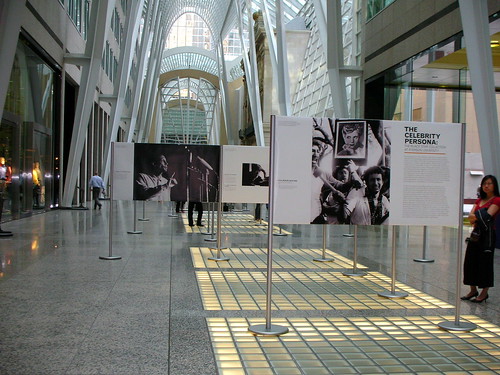I’ve been doing a lot of thinking, talking and reflecting these last few months on a broad cross section of things. One of them is people management, which actually has been a competency I’ve spent years trying to understand: whether it was managing volunteers at non-profits, coaching junior staff in a work environment, or observing how other people interact with others and the impact it had. Today I came across something on Quora that Ben Pieratt wrote and which I think is very wise. He reflects on the work ethic:
I think it comes down to the fact that, for some people, work is personal. Personal in the same way that singing or playing the piano or painting is personal.
As a creative person, you’ve been given the ability to build things from nothing by way of hard work over long periods of time. Creation is a deeply personal and rewarding activity, which means that your Work should also be deeply personal and rewarding. If it’s not, then something is amiss.
Creation is entirely dependent on ownership.
Ownership not as a percentage of equity, but as a measure of your ability to change things for the better. To build and grow and fail and learn. This is no small thing. Creativity is the manifestation of lateral thinking, and without tangible results, it becomes stunted. We have to see the fruits of our labors, good or bad, or there’s no motivation to proceed, nothing to learn from to inform the next decision. States of approval and decisions-by-committee and constant compromises are third-party interruptions of an internal dialog that needs to come to its own conclusions.
Worth reading is also this interview with the CEO of Zynga (one of the fastest growing companies in Silicon Valley). He says what he does to motivate staff, which put words to what I’ve seen in my own observations of effective (and ineffective management).
You can manage 50 people through the strength of your personality and lack of sleep. You can touch them all in a week and make sure they’re all pointed in the right direction. By 150, it’s clear that that’s not going to scale, and you’ve got to find some way to keep everybody going in productive directions when you’re not in the room…
…I’d turn people into C.E.O.’s. One thing I did at my second company was to put white sticky sheets on the wall, and I put everyone’s name on one of the sheets, and I said, “By the end of the week, everybody needs to write what you’re C.E.O. of, and it needs to be something really meaningful.” And that way, everyone knows who’s C.E.O. of what and they know whom to ask instead of me. And it was really effective. People liked it. And there was nowhere to hide.
In case you miss the point, this is it: giving ownership is a powerful emotional state that can literally transform the perception someone has of their work.
Update 11 October 2010: My good friend Alisdair Faulkner — an experienced technology entrepreneur and executive — explains the spirit of the term “ownership” better with a clarification. Alisdair says it’s less so about ‘ownership’ than it is ‘creative control’, which he says means “Authority and Accountability vested in the same individual”.


